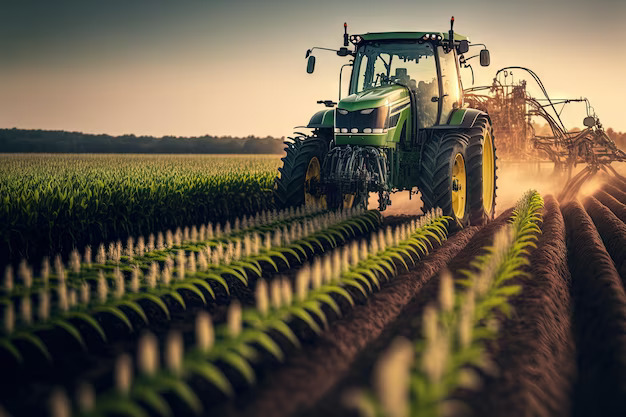Feeding the World Efficiently: Necessity of ERP in Agri-Business
What is ERP Software?
ERP, which stands for Enterprise Resource Planning, is a type of software system designed to help organizations manage and streamline their business processes and operations.
"Within the realm of Agriculture and Agribusiness, the significance of ERP software cannot be overstated. It plays a pivotal role in optimizing the entire spectrum of operations, encompassing procurement, production, and distribution. Moreover, an ERP platform empowers organizations to elevate their worth, attain greater trade efficiency, foster internal collaboration, and sharpen their business analysis capabilities."
Unveiling the Crucial Significance of ERP Software in Agricultural Management
In the rapidly evolving landscape of modern agriculture, the implementation of ERP (Enterprise Resource Planning) software has emerged as a game-changer. This advanced technological solution has revolutionized the way agricultural businesses operate, offering many benefits that enhance efficiency, productivity, and overall management.
Here, we find out the pivotal role of ERP software in agricultural management.
1. Streamlining Operations: ERP software integrates various aspects of agricultural management, from procurement and production to distribution and sales, into a cohesive system. As a result, agricultural businesses can streamline their operations, reduce redundancy, and enhance overall efficiency.
2. Scalability and Flexibility: Agriculture is inherently seasonal and subject to fluctuations. ERP software offers scalability and adaptability, allowing agricultural enterprises to adjust to changing demands and market conditions. Whether you're a small family farm or a large agribusiness, ERP systems can be tailored to suit your specific needs.
3. Inventory Management: Efficient inventory management is critical in agriculture. ERP software provides real-time visibility into inventory levels, helping farmers and agribusinesses make informed decisions about restocking, preventing overstocking, and reducing wastage. This leads to cost savings and improved profitability.
4. Financial Control: Managing finances in agriculture can be complex, with expenses related to seeds, fertilizers, equipment, labor, and more. ERP software simplifies financial management by automating tasks like budgeting, accounting, and financial reporting. This ensures that every financial aspect is tracked accurately and transparently.
5. Supply Chain Optimization: The agricultural supply chain can be complex, involving multiple stakeholders, from suppliers to distributors. ERP systems help optimize the supply chain by ensuring that the right products are available at the right time and place, minimizing delays, and reducing costs.
6. Enhanced Decision-Making: ERP software provides access to real-time data and analytics, enabling farmers and agricultural managers to make informed decisions. Whether it's crop planning, resource allocation, or marketing strategies, data-driven insights empower better decision-making.
7. Sustainability and Compliance: In an era where sustainability and environmental regulations are paramount, ERP software can assist in tracking and managing compliance with industry standards and environmental regulations. This ensures that agricultural practices remain environmentally responsible and compliant.
8. Improved Collaboration: Collaboration is key in agriculture, especially in the case of contract farming or partnerships with suppliers and distributors. ERP systems facilitate communication and collaboration among stakeholders, improving transparency and efficiency in the supply chain.
Why ERP is necessary for Agribusiness?
ERP software is indispensable for agribusiness for several compelling reasons.
Firstly, it brings coherence to the multifaceted operations of agribusiness by seamlessly integrating functions such as procurement, production, inventory management, and distribution. This integration minimizes data fragmentation and enhances operational efficiency.
Secondly, ERP software offers scalability, enabling agribusinesses to adapt to dynamic market conditions and varying demands. Moreover, it plays a pivotal role in optimizing inventory management, financial control, and supply chain operations, reducing waste, and improving cost management.
Additionally, ERP systems empower data-driven decision-making, ensuring that agricultural practices are based on accurate insights.
Furthermore, they aid in maintaining compliance with industry regulations and environmental standards, promoting sustainability.
Lastly, ERP software fosters collaboration among stakeholders, facilitating transparent and efficient supply chain management. In essence, ERP software is an essential tool that empowers agribusinesses to thrive in a competitive and evolving industry landscape.
Conclusion:
In conclusion, ERP software has become the utmost important tool in modern agricultural management. Its ability to streamline operations, provide scalability, enhance financial control, optimize the supply chain, and enable data-driven decision-making has made it an essential asset for farmers and agribusinesses looking to thrive in today's competitive agricultural landscape.



Comments
Post a Comment